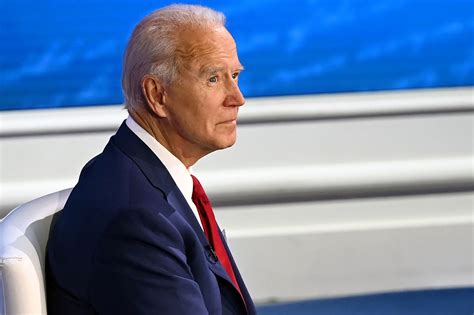The World Paid a Steep Price for Biden’s Decline
Seth Mandel. for Commentary.org
Back in 2016, Tevi Troy wrote a book called Shall We Wake the President? The title references Hillary Clinton’s campaign ads asking whether she or her opponent should be the one to answer 3 a.m. phone calls at the White House. But aides to the current president had a bigger challenge: “Shall we wake the president” was a 24-hour riddle.
The Wall Street Journal’s report on Biden’s presidential hibernation adds to what we know in two crucial ways. First, it tells us that Biden wasn’t up to the job on day one, let alone day 1,000. Second, the reporters provide us with examples of how global conflicts were affected by the White House staff’s cover-up of the president’s condition.
In the early months of Biden’s term, advisers “noticed that the president became tired if meetings went long and would make mistakes.” From then on, they ordered, one-on-one time with Biden would be limited in time and scope even when it came to “powerful lawmakers and allies.”
That meant the global crises that arose during Biden’s presidency were dealt with by reducing the flow of information to and from the president—a recipe for disaster. In 2021, the first such disaster struck: the U.S. withdrawal from Afghanistan.
Rep. Adam Smith, “a Democrat who then chaired the powerful House Armed Services Committee, was alarmed by what he viewed as overly optimistic comments from Biden as the administration assembled plans for the operation,” the Journal reports. So he tried to get a word with the president, to no avail. In the event, 13 Americans and 170 Afghans were killed in the clumsy and ill-conceived operation.
Yet the administration had the temerity to scold Smith when the congressman criticized the withdrawal.
Smith, as well as Democrat Jim Himes, who led the Intelligence Committee, both told the Journal they had interacted far more with Barack Obama during Obama’s presidency despite the fact that neither were committee chairs at the time.
Rather than being an anomaly that was quickly corrected, the Afghanistan pullout set the course for the administration’s handling of foreign affairs.
In fact, as the president’s condition worsened, he needed more time, not less, with key Cabinet secretaries. But because a coverup was in place, the White House went in the opposite direction.
For the first two years of the term, Defense Secretary Lloyd Austin attended the president’s briefings weekly, and then would meet Biden one-on-one afterward. “But in the past two years—a period when the wars in Ukraine and Gaza demanded the president’s attention—Austin’s invitation to the briefing came less frequently, to the point where the one-on-one meeting was seldom scheduled.”
The Journal then drops the revelation that from that point on, one-on-one meetings (already rare) were not in person but “were more typically virtual meetings.” Which means the meeting wasn’t really one-on-one, doesn’t it? Nor is there any expectation that a president who can’t pay attention in person will be productive in a Zoom setting, presumably with aides within earshot, further splintering his attention.
This means, above all, that most people stopped seeing the president entirely.
There was a land war in Europe, Americans were taken hostage in Gaza after dozens of Americans were among the 1,200 killed in Hamas’s brutal rampage. And yet, the president was stored away in some utility closet somewhere.
Meanwhile, we can gather more information about his handling of foreign-policy crises from the details regarding his reelection campaign—which went on as planned, despite everything, until the president imploded in public: “Biden’s pollsters didn’t meet with him in person and saw little evidence that the president was personally getting the data that they were sending him, according to the people.”
He didn’t know he was on pace to lose in a landslide because, apparently, no one told him. At some point, his reelection campaign looks more like elder abuse than anything else.
It also tracks with what the Journal reported about Biden’s insulation from criticism more broadly: “Press aides who compiled packages of news clips for Biden were told by senior staff to exclude negative stories about the president.”
We don’t know exactly which stories those were, but we know the president’s aides were avoiding giving him bad news. Did Biden even know what was really happening on the ground in Ukraine? When the administration froze the Israel-Hamas war in Gaza for months, dooming a number of the hostages and allowing Hamas to regroup and thus prolonging the war, who was responsible for that freeze? Who tried to hit “pause” on reality like it was Netflix? And if the president was the one who made that call, what kind of information was he going on?
The fact that we have to ask the questions at all, as well as the fact that we know we won’t get answers until the administration leaves office and the subpoenas start flying, is perhaps enough of an answer to know that the world paid a dear price to protect the fragile mental state of the American president.
